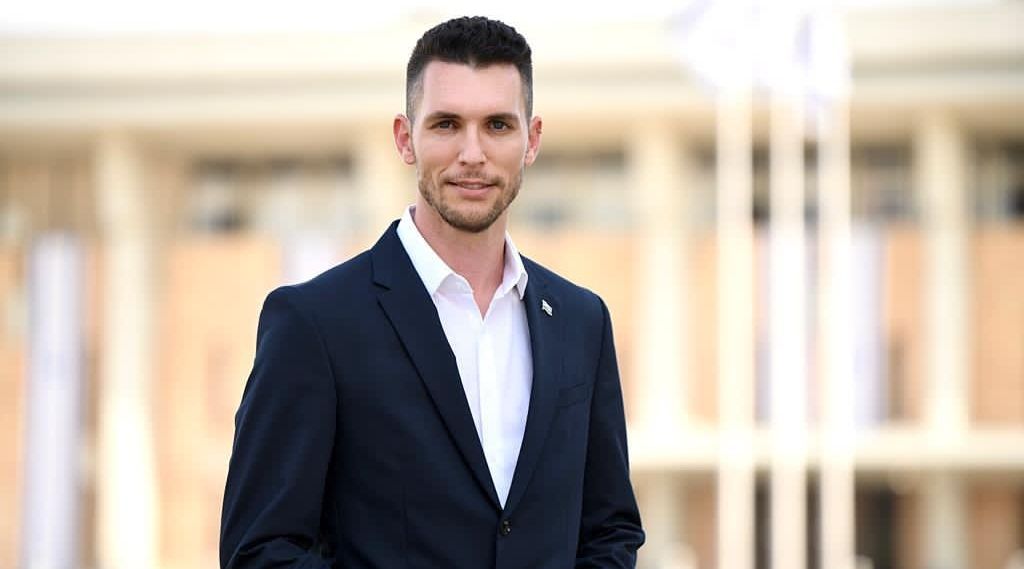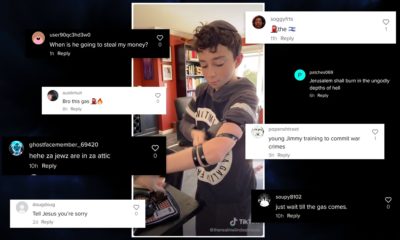
World

Israel’s deputy foreign minister Roll woos US progressives, but his country’s policies get in the way
Published
2 years agoon
By
JTA StaffWASHINGTON (JTA) — Idan Roll’s mission as Israel’s deputy foreign minister is to repair the country’s relationship with progressives, especially in the United States.
His challenge is that he is bound by an Israeli political reality that has shifted to the right.
It’s a dilemma that he understands, and hopes to bridge.
“I want to try and promote this so-important relationship,” Roll said earlier this month of the US-Israel relationship, speaking at a reception on 16 November for national US media, Jewish media and Arab media. “First and foremost is to reach out and extend dialogue and hear different thoughts, and even be open to criticism.”
Israel’s young government, led by Prime Minister Naftali Bennett and Foreign Affairs Minister Yair Lapid, has made a priority of restoring relations with the American left. Roll — 37 years old, strikingly handsome, trim and poured into a bespoke wardrobe, fluent in English — is part of that charm offensive.
The problem is policy. Israel maintains many of the policies that stoked tensions with the left in the first place. Among them are advocacy for a tough US stance toward Iran, expanding settlements in the West Bank, maintaining Israel’s hold on all of Jerusalem, and nixing, for now, moves toward Palestinian statehood.
That contradiction was sharply illustrated when, returning from the United States, Roll cancelled scheduled meetings with Belgium’s left-leaning government because of a law it had just passed requiring goods manufactured in settlements to be labelled as such.
“The Belgian government’s decision to label products from Judea & Samaria strengthens extremists, does not help promote peace in the region, and shows Belgium as not contributing to regional stability,” Roll said on Twitter, using the biblical names for the West Bank preferred on the Israeli right.
Those were the kind of policy flash points Roll tried to avoid during his US tour, when he met with Democratic lawmakers and engaged them on LGBTQ+ issues. Still, he faced sharp questions in his meetings on policies on Iran and on the Palestinians.
Roll met with Republicans and centrist Democrats, but progressives were a key target. Democrats on the left have openly called to defund US defence assistance to Israel. The growth of a party wing that does not want to automatically fund Israel’s defence needs has set off alarm bells in Israel. Roll’s visit comes after progressives complained that the Biden administration was trying to push through extra money for Israel’s antimissile system, Iron Dome, without debate. Establishment Democrats gave in to the demand for debate and after a contentious session, most (but significantly not all) of the progressive caucus voted for the funding.
Bringing Jewish progressives into the conversation was a priority for Roll, who used the same term, “family”, that Lapid has embraced in Jewish outreach. Netanyahu essentially cut off Jewish progressives and made it clear that he saw Evangelical Christians as more reliable than Jews in supporting Israel.
“We are all part of one family. Families, they might have disagreements,” Roll said in the interview. “What family doesn’t? The main thing is that we can always sit together and discuss these disagreements and reach a conclusion. Sometimes we can’t but we want people to know that they are heard.”
Israeli government officials and pro-Israel groups often emphasise Israel’s liberal LGBTQ+ policies in their pitch to progressives, noting the repression queer people suffer elsewhere in the Middle East. Roll is no exception. In an interview, he noted that Israel recently become one of the first nations to allow openly gay men to give blood.
“I just went and donated a lot a few days ago and you know, it felt good,” he said.
Roll, a lawyer who emerged as an advocate for LGBTQ+ rights before he entered politics, is nonetheless sensitive to the strides he feels Israel has yet to make. He is candid in describing his difficulties marrying in a country where the Orthodox rabbinate controls Jewish marriage and will not countenance same-sex marriage. He and his husband, Israeli pop star Harel Skaat, were married remotely by an officiant in Utah, an option that only emerged during the pandemic.
He also advocates for surrogate parenthood. He has two children through surrogacy, a boy and a girl born in Oklahoma, and speaks warmly about the Reform movement, which helped walk him through the surrogacy. (Israel for years extended surrogacy rights only to heterosexual couples and single women; its Supreme Court in July extended it to gay men.)
“The Reform movement was so, so kind and so welcoming. Doing surrogacy in a foreign country … is a journey,” he said.
But unlike other Israel defenders, Roll does not cast Israel’s gay-friendly environment as a be-all and end-all for progressives; instead, he cites it as an example of how Israel is moving in the right direction.
The government, he said in the interview, “is the most diverse coalition we’ve ever had”, noting the inclusion of an Arab party for the first time in a governing coalition. “Everyone and anyone in Israel can now see someone in this government who they can relate to.” (Arab parties in the past have supported Israeli governments only from outside the coalition.)
“We just passed and allocated a record number of dollars, about $10 billion (more than R150 billion), for Arab society. It’s not going to mean everything, but it’s definitely going to do good work at catching up on this ongoing gap” between Jewish and Arab Israelis. He said that the budget also increased services for the LGBTQ+ community sixfold, and mentioned the prominent role Israel played at the recent conference on climate change in Glasgow.
Roll made the case that listening has its own rewards. “It’s about taking the time to come here and meet with people and create relationships first hand,” he said at his meeting with Washington media. “It’s a weird concept after COVID, but still there’s no substitute [for] sitting down with a person and learning what he or she are all about.”










